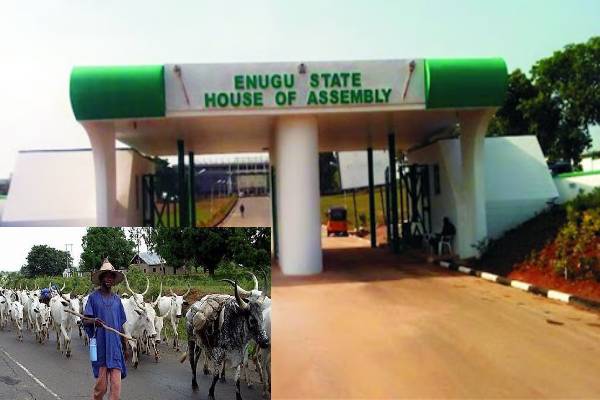Nigeria News
Enugu Assembly Passes Public Ranch Agency Bill To Resolve Farmers/Herders Conflict

The Enugu State House of Assembly has passed a bill allowing the state government to establish an agency for managing both government and privately owned ranches in the state.
Before the bill was passed, Clifford Obe, who represents Igbo-Eze North Constituency II, asserted that the legislation would bring an end to the farmers/herders turmoil in the state.
The lawmaker attributed the decline in agricultural output in the market to the farmers/herders crisis, noting that it has forced numerous farmers off their lands, consequently leading to heightened crime rates and rural-to-urban migration.
Obe said: “The bill will help people not to be afraid. It will make it a must for herders to register whenever they enter any community. It will reduce crime and how cattle mess up our city and rural communities because there would be an agency on the ground to guide the herders.
“Above all, the state government would be able to collect tax from the herders, who before now didn’t pay any tax.”
Adding to the discussion, Okechukwu Aneke, the representative for Udi South Constituency, emphasized that there is no reason for apprehension regarding the bill, highlighting that herders encompass various ethnicities beyond the Fulani community.
The legislator reiterated the bill’s aim to regulate herders, emphasizing that those invading and attacking communities in the state do not represent genuine herders.
Aneke said: “This agency, when established, will have a designated area where the cattle and their herders will be stationed.
“Any herder who is found in our bush and not in the designated place should be treated as an intruder and a kidnapper.“
Another lawmaker, Chima Obieze, expressed regret over the bill’s criticism, suggesting that detractors are uninformed about its contents and that there is no cause for alarm.
He urged the public not to dissuade individuals from other regions from engaging in business activities in Enugu, while emphasizing that nomadic herders are welcome in the state as long as they abide by existing laws.






